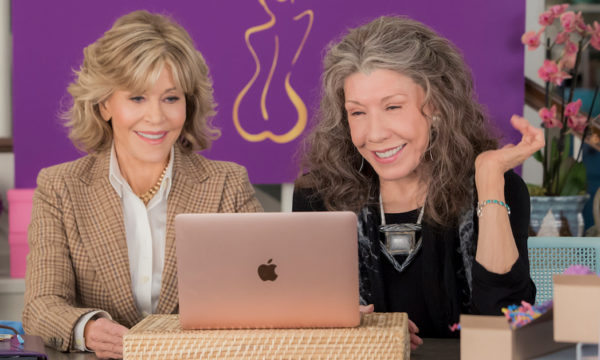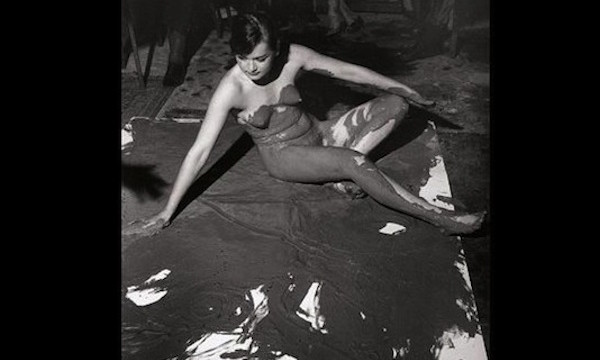
Shop This Look
How to Change Your Career Without Going Broke, According to 5 Women Who Actually Did It
No matter how daunting it may appear, it is possible to pivot your career regardless of your industry, level of experience, or age. You just need to plan ahead.
Whether it’s a desire to earn more money or a need for a more flexible schedule, 73 percent of women want to change jobs, according to a 2019 report by the women-focused data and research company, InHerSight. The women surveyed reported a need for more pay, a desire to find a career with a mission they believe in, and burnout in their current profession. And this report was from before the pandemic and the drastic effect it had on women and their careers. It’s probably safe to say that the number of women re-considering and reimagining their careers is much higher now.
But that doesn’t mean that women feel comfortable just up and quitting their jobs. Factor in the lack of financial stability, unreliable or nonexistent support systems, the narrative that it’s “too late” to switch gears, and of course, fear of failure, and it makes sense that most women are scared to take the plunge and change their career mid-course. Still, there are women who have figured out a way to do it and made it to the other side to share their stories.
Read on to learn how five women were able to take the leap, including the resources they utilized, what the process looked like (hint: it’s not always linear), and their biggest takeaways for others who are hoping to do the same.
Want more M Dash?
Sign up for our weekly newsletter.
Thank you!
Step Sideways to Move Forward
Anji was making a six-figure salary as director at a tech PR agency in Seattle when she got furloughed last summer. The unexpected change made the 33-year-old realize how unhappy she was, and she wanted to try a more mission-driven career path after a decade of “agency hopping.”
She eventually landed at a nonprofit in the health and wellness space, where she is currently the communications manager on a team of five people. Along with a major pay cut, she took on a lot more responsibilities.
“I’m still very much getting my bearings, but I’m going from a fully functioning agency where I was overseeing people to instead being the strategist, content developer, social media coordinator, and events manager—all at the same time,” says Anji. “I have three to four job titles now, versus before where I was doing something really specialized.”
According to Anji, there are days when she’s totally happy about her choice, and then days when, in her words, she feels like, “‘WTF, why did I do this?’”
But while working at the nonprofit isn’t necessarily Anji’s “dream job,” she knows it’s a step in the right direction of where she ultimately wants to be. “I see myself growing and doing way more. I keep reinforcing that this job is a stepping stone.” She’s also okay accepting the imperfection of right now.
“You know how Brené Brown talks about the ‘messy middle’? That’s me,” explains Anji. “I’m still at home with my parents, I’m in my early thirties, and on paper, maybe this role doesn’t feel right or isn’t exactly where I wanted to be, but hopefully in a year or two, I will be. I’ll look back and think that this was a good job that got me to the next job.”
Make Use of Your Contacts and Community
After years of working as a journalist in New York media, Julianne decided to take the plunge and quit her job to travel the world, something she had wanted to do for a long time.
“I didn’t have a job lined up when I quit, but I did have a lot of savings,” she says. “I had enough money to get through about six months without work, which was important to me, because I didn’t want to move home with my parents. I naturally tried to budget myself and limit expenses that felt frivolous. I waited to quit my job until the start of the fiscal year, because then I could get my bonus for the previous year and make sure my 401k savings were all vested, which I think is important for anyone who is making a pivot.”
Beyond her savings, Julianne was able to find additional income by tapping into her contacts and online communities.
“I had nothing lined up, but one advantage was that I had tutored on and off during my early twenties, so I had a vague sense of how to find tutoring gigs through websites,” she explains. “Pretty much immediately, I started using those sites to reach out and send applications and cover letters to parents and students who were looking for SAT prep tutors or college admissions counseling. I was actually pretty successful in cobbling together some tutoring gigs, some of which were recurrent and all of which I could do remotely.”
After living in Argentina and traveling to places on her bucket list, Julianne returned home but knew she wanted to keep traveling.
“I got really serious about finding more tutoring gigs and remote freelance work, because I knew I wanted to be traveling for longer, and I still wasn’t ready to apply for another full-time job,” she says. “At this point, I joined a bunch of digital nomad and travel-writing groups on Facebook—basically any sort of Facebook group for anything remotely tangential to some kind of work that would fit with my schedule.”
It was through one of these online communities that she discovered a freelancing opportunity that later evolved into a full-time job. The company, LitCharts, was looking for people to write study guides for short stories and novels, and Julianne, who majored in literature in college, knew it was right up her alley.
She continued to travel and write for LitCharts while subletting her Brooklyn apartment. When she eventually decided she was craving a more structured lifestyle and was ready to return to New York, LitCharts offered her a full-time position. She happily took it.
“A Facebook group I joined was what led me to this job,” she says. “I never would have seen the job listing [without it], so that group was invaluable. I recommend joining any sort of community that can show you what other people are doing or just let you know what’s out there.”

Listen to Your Gut Early On
After graduating from Tufts University in 2019, 23-year-old Anita didn’t think twice about taking a job offer from Wells Fargo. “It’s a great starting point. I was going to get a lot of exposure, opportunities, and experience in this role. It was a no-brainer for me.”
Even though she enjoyed working in finance and the security that came with it, Anita always knew her passion was elsewhere, in journalism.
“I was really afraid of making the leap to media where I probably would have to take a step back and definitely would have to take a big pay cut,” says Anita, who is currently based in Phoenix, Arizona. She figured she’d make a compromise and took a job fundraising for private equity firms.
“I lasted at that job for five weeks,” she says. “It totally wasn’t what I expected, and that taught me that I didn’t want to compromise on what I was passionate about.”
Anita quit the job and moved back in with her parents, where she began applying for positions in media while also contemplating graduate school. Soon after, she accepted a fellowship at Business Insider, which she is starting in June.
And while Anita, who is also a career coach, has no regrets about her experience working in investment banking––her savings from the job enabled her to take the Insider gig—she does wish she would have listened to her intuition earlier.
“The mistake I made was trying to find a compromise and not just taking the leap,” she says. “My gut was telling me that this is the industry I want to be in. I’m the kind of person who, if I want something really badly, will work really hard and go for it full force. So instead of being scared and concerned about the financial aspect, I wish I had taken some of that anxiety and channeled it into figuring out how to make it work financially rather than shying away from the challenge.”
Ask the Right Questions
Like Anita, Cameron had also found security in a high-paying finance job in New York, having worked in sales and trading at J.P. Morgan for five years. During that time, the 29-year-old fantasized about making her passion project, the food blog Freckled Foodie, a full-time job. Then, in March of 2018, she was hit by a car while crossing a street in Brooklyn. As a result, Cameron suffered from a concussion and was on disability leave for two months. The experience changed her life perspective and gave her a push to pursue the career she dreamed about.
However, Cameron says that she’s not a “huge proponent of everyone leaving the corporate world to chase their dreams” just because she did.
“I think that’s a late-millennial/Gen-Z thing,” she says, acknowledging the financial privilege she has experienced. “I want everyone to understand the importance of stability, because that’s something I kind of took for granted: the stability of a paycheck, benefits, and time off. I’m pregnant right now, so maternity leave, too––all those things, I don’t think should be taken for granted or ignored.”
Cameron doesn’t think you need to get hit by a car in order to be motivated to make a career change. “Ask yourself, ‘What do I love about certain aspects of my life? What do I want more of? What do I want less of? How can those things also coincide with a career?’” she says. “And that might mean you stay where you are. That might mean you change. But focus on things that are making you feel fulfilled and happy, rather than solely chasing what you think society believes you should be doing or what seems like the most ‘prestigious’ title.”

You Don’t Need to Quit Today
Over the past several years, Mindy has earned six figures annually in her tech career. But when the pandemic hit, she decided to reevaluate what she wanted. This spring, the 31-year-old New Yorker will be leaving her leadership role in product to “redesign” her life with her partner, which includes building a home in the woods and going back to the drawing board when it comes to her career.
“My favorite part of my job as a technology leader has always been supporting my team members’ and mentees’ growth,” says Mindy.
Mindy points out that the issue with coaching within an organization is that she has to keep the organization’s agenda top of mind, as opposed to supporting an individual’s separate goals. She became curious about what it would be like if she were able to coach with the individual’s agenda at the forefront instead.
“That’s a hypothesis that I’m exploring right now,” says Mindy, who started coaching individuals one-on-one in the fall on weeknights and weekends. While she doesn’t know what’s next in her professional life, she doesn’t see herself returning to the same kind of role that she previously had.
For those who have the desire to switch career paths but are scared about taking a risky leap, Mindy emphasizes that it’s not necessary to quit your day job. At least, not right away.
“What you do have to do is carve out energy and time so you have that excess energy to experiment,” she explains. “Whether it’s a side project or finding mentors in the space that you hypothesize being interested in.”
“A lot of my work with these women has been like, ‘OK, what can you get away with at work?” she continues. “Because so many women are like, ‘I have to be 250 percent on top of my job.’ But the reality is, they could actually scale that back quite a bit in their full-time roles to carve out energy for themselves. And that’s kind of what I did on the coaching front––just slowly carving out, ‘How can I test this hypothesis while working a full-time job, so I’m not taking a leap before I’ve tested it and shaped a possible new identity for myself?’”
Ultimately, approaching your career as a scientist, testing a hypothesis, gathering research, and finding allies can make a career pivot less nerve-wracking.
“If someone is contemplating a career transition, their existing circles might think they’re crazy,” says Mindy. “A lot of the time, it does take reaching out and forming a new community of people who get it and are like, ‘Oh yeah, I can see why you would want to make that leap.’”







